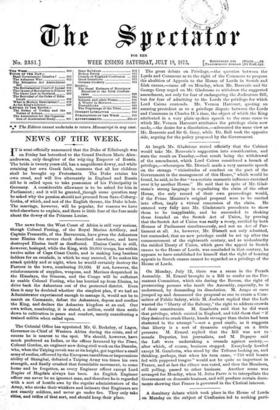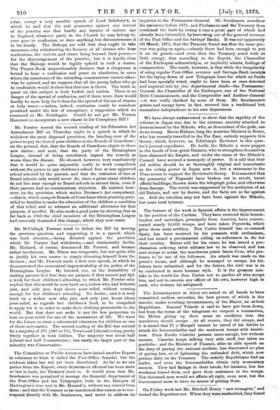A desultory debate which took place in the House of
Lords on Monday on the subject of Confession led to nothing parti-
cular, except a very sensible speech of Lord Salisbury's, in which he said that the real guarantee against any revival of the practice was that hardly any layman of mature age in England, whatever party in the Church he may belong to, ever goes to confession, or does anything but discountenance it in his family. The Bishops are told that they ought to take measures,—by withdrawing the licences of all curates who hear confessions, the rectors and vicars being beyond their power,— for the discouragement of the practice, but it is hardly clear that the Bishops would be legally upheld in such a course. The Prayer-Book unquestionably declares that a clergyman is bound to hear a confession and grant an absolution, in cases where the conscience of the intending communicant cannot other- wise be quieted, and we suppose that all the young ladies who go to confession would declare that that case is theirs. The truth is, panic on this subject is both foolish and useless. There is no danger of the spread of confession, and if there were, there would hardly be more help for it than for the spread of the use of charms or holy water ;—unless, indeed, confession could be somehow punished under the law of conspiracy, a suggestion which we commend to Mr. Newdegate. Could he not get Mr. Vernon Harcourt to incorporate a new clause in his Conspiracy Bill ?



































